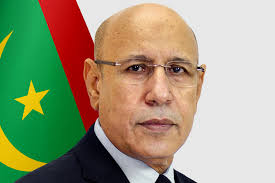
Mauritania has secured a major financial commitment of $2 billion from the Arab Coordination Group (ACG) to fund its 2025–2030 national development plan, marking a significant milestone in its ongoing efforts to modernize the country’s infrastructure and diversify its economy.
The announcement came during a roundtable in Austria, where Mauritanian authorities laid out their economic recovery blueprint, which centres on large-scale investment in energy, water, transport, and digital infrastructure.
The plan aims to foster inclusive and sustainable growth by reducing dependence on extractive industries and opening new sectors for development.
This funding pledge, made by the ACG—a coalition of several prominent Arab financial institutions—underscores growing international confidence in Mauritania’s reform agenda and economic potential.
The support is not just a diplomatic gesture, but a targeted investment reflecting a broader strategic interest in the region’s evolving development dynamics.
In a joint statement, Mauritanian officials reiterated their commitment to “implementing the necessary reforms to improve the business climate, strengthen institutional capacity, and ensure transparent management of funds.”
This assurance appears to have been key in attracting substantial foreign backing.
The Arab Coordination Group’s involvement signals Mauritania’s increasing alignment with regional partners in the Middle East and North Africa.
Analysts say this relationship offers more than financial assistance—it brings technical expertise and potential future collaboration on regional connectivity and trade.
The Mauritanian government has laid out a phased strategy for deploying the funds, with priority given to projects capable of delivering tangible benefits in the short to medium term.
Sectors such as renewable energy and digital transformation are expected to play pivotal roles.
The $2 billion pledge represents more than just capital—it is a vote of confidence in Mauritania’s direction and an opportunity to reshape its economic foundations.
As implementation begins, the challenge will be to ensure that projects translate into meaningful progress for the population, reduce inequalities, and fortify the nation’s resilience in a rapidly changing regional landscape.



